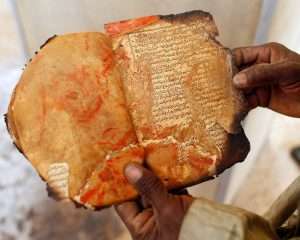Chad: $31 million loan to boost food security and energy

People in Chad using traditional energy sources like charcoal to cook and power their houses (via Borgen Project)
The OPEC Fund for International Development (OFID) loaned Chad $31 million, consisting of two concessional loans addressing urgent food security and energy needs, as reported by Africa Sustainability Matters plus agencies on 26th October.
The first loan of $15 million is for the “Energy Sector Support Project,” aiming to provide affordable and clean energy access. The second loan of $16 million is for the “Rice Farming Development Project in the Chari-Logone III region,” aiming to promote home production and reduce imports.

In the Sahel, countries like Chad face political conflict, migration issues, and a drought-prone climate with a few crops, which makes development challenging.
Experts maintain that such funding is especially important for Chad, as the United Nations estimated 6.9 million Chadians face severe food shortages before the next harvest season, along with inflation.
Almost 80 percent of the Chad population relies on agriculture as a profession. The new project will repair irrigation systems, promote high-yield, drought-resistant rice, and support farmer groups and local processing. By improving water use and expanding farmland, it aims to boost food security for many rural families and support Chad’s plan for sustainable farming and poverty reduction.
A substantial $15 million will be used to fund solar mini grids and expand rural electrification, where most families still rely on wood and charcoal for their energy needs, causing deforestation and air pollution.
Although Chad produces oil, it has one of the world’s lowest electricity access rates – only 11% of people have power, and in rural areas, it’s below 2%. This is a wider Central and West African problem, with about 190 million people in energy poverty. But the Sahel’s share of strong sun holds great potential for renewable solar energy.
The OPEC fund for Chad comes at a time after elections that were criticised for being unfair and restricting opposition. Earlier this year, Chad, followed by Senegal, had French troops leave their country, taking a step towards sovereignty and developing their own strategic partnerships.
With the broader energy poverty in Africa and infrastructural gap, achieving universal electricity access in sub-Saharan Africa by 2030 will need about $30 billion in yearly investment, according to the International Energy Agency. This makes lenders like the OPEC Fund vital for the continent, some with limited fiscal flexibility and transitional governments.
ASM plus agencies, Maghrebi.org
Want to chase the pulse of North Africa?
Subscribe to receive our FREE weekly PDF magazine














